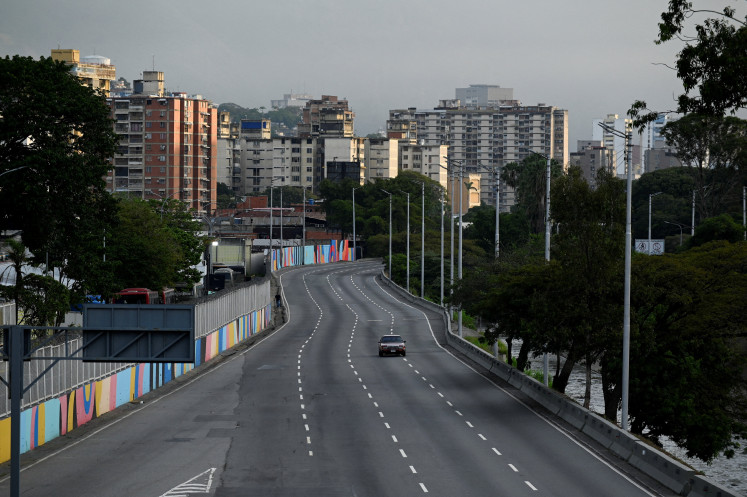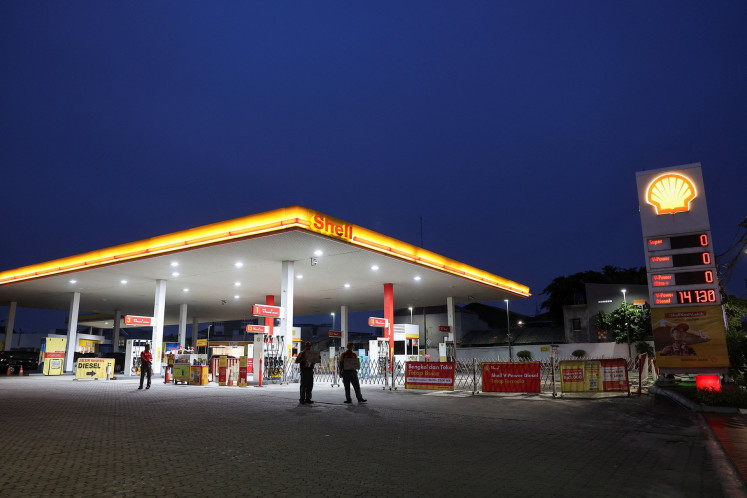Popular Reads
Top Results
Can't find what you're looking for?
View all search resultsPopular Reads
Top Results
Can't find what you're looking for?
View all search resultsPalm oil producers to benefit from local market
As domestic palm oil producers struggle with various barriers in export destinations, ranging from repeated trade remedy measures to environmental concerns, they are turning to the great potential of the local market
Change text size
Gift Premium Articles
to Anyone
A
s domestic palm oil producers struggle with various barriers in export destinations, ranging from repeated trade remedy measures to environmental concerns, they are turning to the great potential of the local market.
Local biofuel producers have taken steps to capitalize on the domestic market. For example, they will this year sell a sizeable amount of palm oil derivative, fatty acid methyl ester (FAME), to domestic users.
The local market may absorb up to 3.5 million kiloliters of biofuel, more than triple the figure last year, according to the Indonesian Biofuel Producers Association (Aprobi). Domestic biofuel output may hit 5.6 million kiloliters this year, double from last year.
The new opportunity follows a government policy that requires higher content of the palm methyl ester in the diesel fuel blend.
With a 10 percent biofuel blend requirement, state-owned oil and gas firm PT Pertamina may need up to 5.3 million kiloliters of the
ingredient, down from 6.6 million kiloliters estimated earlier. So far, it has secured 2.4 million kiloliters, slightly less than half its overall need.
Although local producers are ready to fulfill the total demand, the execution of the plan is still hampered by the price issue, according to Aprobi executive director Paulus Tjakrawan.
'With the current pricing policy that refers to the benchmark MOPS [Mean of Platts Singapore], we are suffering from losses,' he said, pointing out a gap in the total production cost of US$1,030 per ton and the diesel price of $888.30 per ton.
The production cost of the palm methyl ester comprises crude palm oil (CPO) price, which following the export reference price (HPE) now hovers around $880 per ton, and the cost to process the raw material, roughly $150 per ton.
As a result of the unfavorable policy, a number of biofuel makers are canceling investments totaling millions of dollars and may add 700,000 kiloliters into the existing domestic production capacity of 5.6 million kiloliters.
The Energy and Mineral Resources Ministry director for bioenergy, Dadan Kusdiana, recently said that the government was preparing a new pricing formula that would mix the export reference price and the Singapore diesel price.
Other palm oil products, such as fatty acids and fatty alcohols, also have a big chance for sales in the domestic market.
At present, however, the largest proportion of the products are still exported due to moderate absorption by local users, according to Indonesian Oleochemical Manufacturers Association (Apolin) chairman Togar Sitanggang.
Fatty acids and fatty alcohols are materials to produce surfactants, chemicals used in shampoo, cosmetics, toiletries and detergents. There are still a few local surfactant producers, such as Musim Mas and Germany-based specialty chemical manufacturer Evonik.
'The industry may grow in the next two to five years,' Togar said, citing the need for new investment. He said, however, that might take improvement in the overall business climate in the country and consistent policies, such as export taxes.










